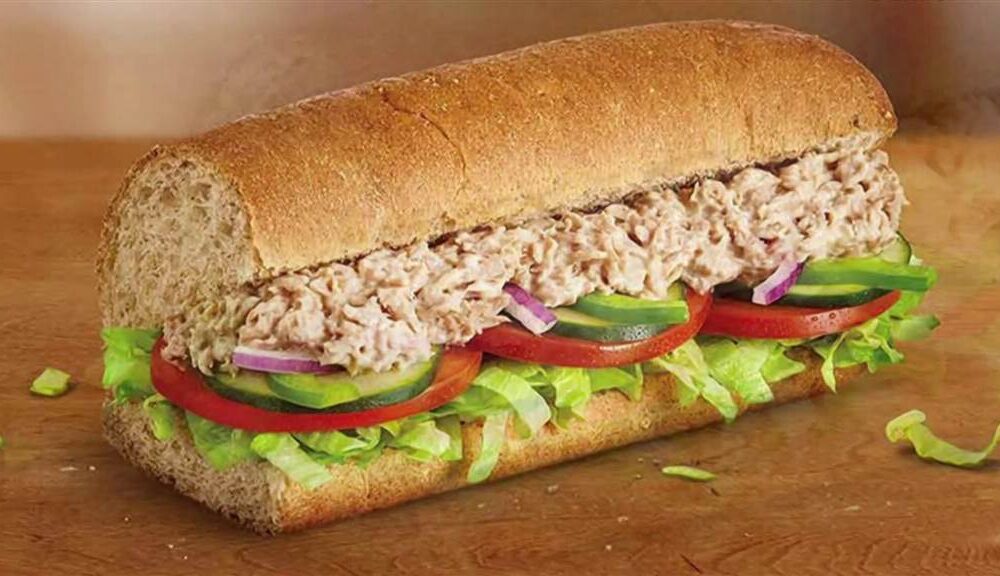Subway describes its tuna sandwich as “freshly baked bread” layered with “flaked tuna blended with creamy mayo then topped with your choice of crisp, fresh veggies.” It’s a description designed to activate the saliva glands — and separate you from your money.
It’s also fiction, at least partially, according to a recent lawsuit filed in U.S. District Court for the Northern District of California. The complaint alleges the ingredient billed as “tuna” for the chain’s sandwiches and wraps contains absolutely no tuna.
A representative of Subway said the claims are without merit. The tuna sold at the chain is wild-caught, the company says, which is how the vast majority of tuna is harvested. Only a tiny percentage of bluefin and yellowfin tuna is farmed.
The star ingredient, according to the lawsuit, is “made from anything but tuna.” Based on independent lab tests of “multiple samples” taken from Subway locations in California, the “tuna” is “a mixture of various concoctions that do not constitute tuna, yet have been blended together by defendants to imitate the appearance of tuna,” according to the complaint. Shalini Dogra, one of the attorneys for the plaintiffs, declined to say exactly what ingredients the lab tests revealed.
“We found that the ingredients were not tuna and not fish,” the attorney said in an email to The Washington Post.
Two plaintiffs are identified in the complaint: Karen Dhanowa and Nilima Amin, both residents of Alameda County in the Bay Area. But attorneys for Dhanowa and Amin hope to get their claim certified as a class action, which could open the case up to thousands of Subway customers in California who purchased tuna sandwiches and wraps after Jan. 21, 2017. Dhanowa and Amin are suing Subway for fraud, intentional misrepresentation, unjust enrichment and other claims under federal and state laws. Among other accusations, the plaintiffs argue they “were tricked into buying food items that wholly lacked the ingredients they reasonably thought they were purchasing” based on Subway’s labeling, packaging and advertising.
What’s more, the plaintiffs argue, Subway is “saving substantial sums of money in manufacturing the products because the fabricated ingredient they use in the place of tuna costs less money.” They argue they paid premium prices for an ingredient that they prize for its health benefits (although the government suggests people, especially young children and pregnant women, limit their intake of tuna because of mercury contamination). In suburban Washington, for example, the price of a foot-long tuna sandwich at a Subway outlet costs $7.39. The same size cold-cut combo sandwich, by contrast, runs $6.19.
“Consumers are consistently misled into purchasing the products for the commonly known and/or advertised benefits and characteristics of tuna when in fact no such benefits could be had, given that the products are in fact devoid of tuna,” the lawsuit claims. According to Subway’s nutritional information page on its website, the tuna salad for its sandwiches contains flaked tuna in brine, mayonnaise and an additive to “protect flavor.” A spokeswoman for Subway said the nutritional information is up to date.










No comments